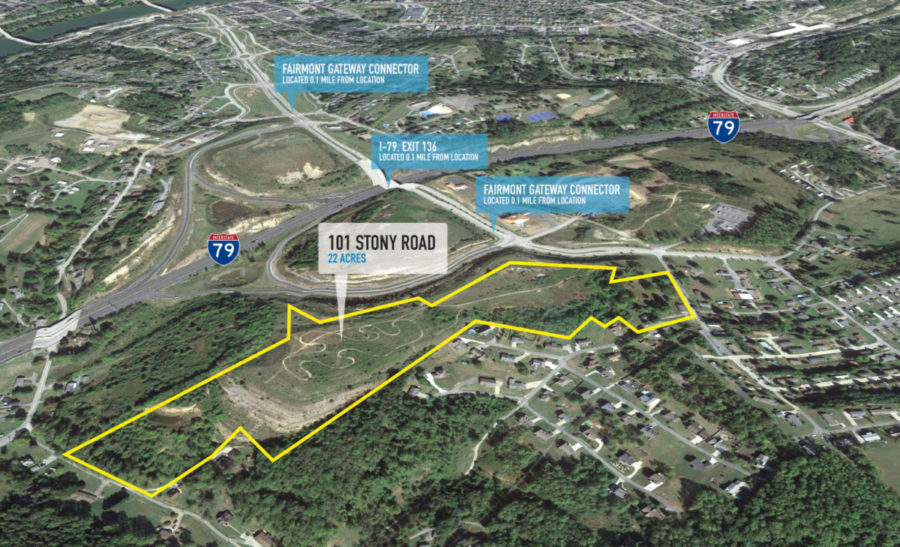Hazel Ruby McQuain Charitable Trust makes $50 million gift to build new cancer hospital
Comments Off on Hazel Ruby McQuain Charitable Trust makes $50 million gift to build new cancer hospitalThe cancer care available to West Virginians took a further, dramatic, and positive turn today (April 2) with a transformational gift of $50 million that the Hazel Ruby McQuain Charitable Trust is making to the West Virginia University (WVU) Cancer Institute. The gift will be the catalyst for a new, state-of-the-art, comprehensive cancer hospital that is part of the WVU Medicine J.W. Ruby Memorial Hospital complex in Morgantown.
“This is a special day for West Virginia and for the Hazel Ruby McQuain Charitable Trust. Hazel would want us to do this and be very happy,” Steve Farmer, chair of the Hazel Ruby McQuain Charitable Trust, said. “We all know someone in our lives who has been impacted by cancer. The new Hazel Ruby McQuain Comprehensive Cancer Hospital will serve all West Virginians.”
The Hazel Ruby McQuain Comprehensive Cancer Hospital of the WVU Cancer Institute will be a multi-story building that offers the most advanced cancer surgical procedures, treatments, therapies, and clinical trials on both an inpatient and outpatient basis. The Cancer Hospital will include inpatient surgical suites; procedural rooms; inpatient rooms for those requiring overnight or extended stays; outpatient clinics; dining services (including a cafeteria); an outpatient pharmacy; and a flower and gift shop.
“We are deeply grateful to the Hazel Ruby McQuain Charitable Trust for making this amazing gift to the WVU Cancer Institute,” Albert L. Wright, Jr., president and CEO of the WVU Health System, said. “This continues Hazel Ruby McQuain’s desire and vision to develop a full-service medical campus and complex in Morgantown that serves as the state’s flagship academic medical center. On one end, we now have a full-service Children’s Hospital; on the opposite end, we will have a full-service Cancer Hospital – two bookends that will be roughly the same size, scale, and scope.”
The Cancer Hospital will be a foundational element of the WVU Cancer Institute as it pursues National Cancer Institute designation, the gold-standard for cancer institutes. Last June, the State of West Virginia separately provided the WVU Cancer Institute with a $50 million supplemental appropriation in support of NCI designation, a process that typically takes five-to-seven years.
“I cannot thank the trustees of the Hazel Ruby McQuain Charitable Trust enough for this magnificent gift – it is a true game-changer,” Gordon Gee, WVU president and chair of the WVU Health System Board of Directors, said. “A gift of this magnitude will be a multiplier that will lead not only to a new, state-of-the-art cancer hospital on our Health Sciences campus but also attract new researchers and care providers who will want to come to West Virginia to help address one of our most pressing health issues.”
Development of the Cancer Hospital itself is subject to certain approvals from the WVU Health System and WVU Hospitals governing boards, as well as various regulatory authorities, and will occur over the next several years as the Health System updates its campus plan to account for the new hospital.
In 1983, Hazel Ruby McQuain, a noted business and community leader and philanthropist, donated $8.5 million that made the construction of J.W. Ruby Memorial Hospital possible. Today, it has grown into a nationally recognized, 881-bed academic medical center.
“The people of West Virginia deserve to have access to the best care possible for all types of cancer, especially those that are so prevalent in our state, such as lung, breast, prostate, and colorectal cancers,” Clay B. Marsh, M.D., chancellor and executive dean of WVU Health Sciences, said. “We are so grateful to the Hazel Ruby McQuain Charitable Trust for recognizing this great need and for the generous gift that will impact our ability to provide the highest level of care and research for our patients now and for decades to come.”
The new Cancer Hospital will enable the WVU Cancer Institute’s clinical leadership to provide the Institute’s existing multidisciplinary care under one roof, as the best outcomes happen when members from all cancer disciplines including surgical, medical, radiation oncologists and other cancer specialists work together in multidisciplinary cancer treatment. The WVU Cancer Institute’s care teams focus on brain and spine, breast, endocrine, gastrointestinal, genitourinary, gynecologic, head and neck, blood cancers, lymphoma and myeloma, melanoma and skin, bone and soft tissue, and thoracic cancer care.
Several treatment and specialty teams and services are integrated into patient care, including cancer prevention and education, clinical research, CAR T-cell therapy, cardio-oncology, outreach, genetics, integrative medicine, pain management, reconstructive surgery, and rehabilitation, among others. Cancer research, and integrating that research into these multidisciplinary teams, is also critical to improving cancer outcomes. As such, the new Cancer Hospital will provide the space and structure to enhance the Institute’s existing research programs and allow for growth in research.
“This gift will revolutionize our ability to provide highly specialized cancer care to people from all corners of West Virginia and the region,” Hannah Hazard-Jenkins, M.D., executive chair and director of the WVU Cancer Institute, said. “The generosity of this gift will have a direct impact on the patients we serve and make a real difference. We are grateful to the Hazel Ruby McQuain Charitable Trust for carrying out Hazel’s mission of providing hope and improving lives.”
The gift was made through the WVU Foundation, the nonprofit organization that receives and administers private donations on behalf of the University and its affiliated entities.
“Mrs. McQuain lived her life according to a humble philosophy: ‘What we are is God’s gift to us. What we become is our gift to God.’ She has undoubtedly been an incredible gift to this community, and we are grateful for the Hazel Ruby McQuain Charitable Trust’s ongoing generosity in her memory,” Cindi Roth, president and CEO of the WVU Foundation, said.
For more information on the WVU Cancer Institute, visit WVUMedicine.org/Cancer.
Original Article by WVU Medicine.org






